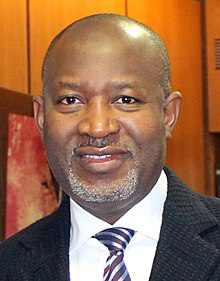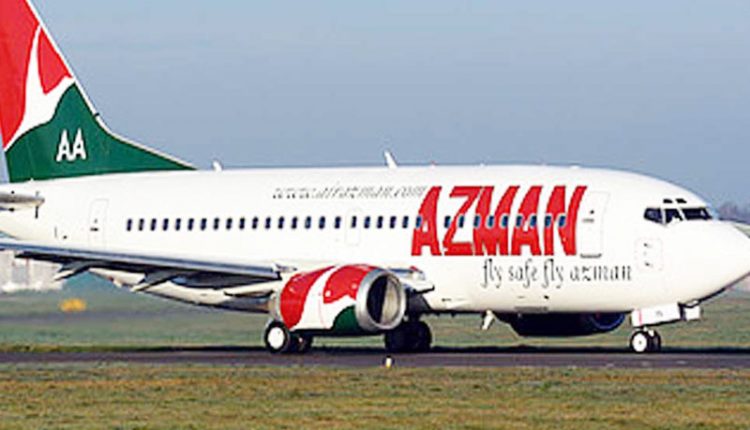Nigeria to fine airlines from Brazil, India, Turkey $3,500 for violating travel advisory
By Favour Nnabugwu
The Presidential Steering Committee on COVID-19 after carrying out a risk assessment of countries with cases with high incidence, fatality rate of the virus and has issued a travel advisory for passengers arriving Nigeria from Brazil, India and Turkey with a $3500 fine on airlines that violate the travel protocols set for the specific countries.
The committee has also from Tuesday May 4th, 2021 reduced the validity period of pre-boarding COVID-19 PCR test for all Nigeria bound passengers from 96hrs to 72 hours henceforth stating that PCR test results older than 72 hours before departure shall not be accepted.
A statement signed by Secretary to the Government of the Federation/ Chairman, Presidential Steering Committee on COVID-19, Boss Mustapha stressed that Nigeria has been monitoring with concern, the increasing trend of COVID-19 cases in several countries over the last few weeks.
He stated that the Government of Nigeria deeply empathizes with the citizens and governments of these countries, and assures them of our commitment, unflinching support and solidarity at this time of need.
Mustapha said that in an effort to continue to safeguard the health of the Nigerian population, as well as to minimize the risk of a surge in the number of COVID-19 cases in Nigeria, the Presidential Steering Committee carried out a risk assessment of countries with high incidence of cases.
The risk assessment took into consideration the epidemiology of cases, prevalence of variants of concern and average passenger volume between Nigeria and each country amongst other indicators.
He said,” Of the countries assessed, this interim travel advisory applies to three (3) countries in the first instance. These precautionary measures are a necessary step to minimize the risk of a surge in COVID-19 cases introduced to Nigeria from other countries, while national response activities continue.
“Nigerians are strongly advised to avoid any non-essential international travels to any country at this period and specifically to countries that are showing rising number of cases and deaths. The Presidential Steering Committee on COVID-19, after due consideration has therefore approved the implementation of the following measures:
“(i) Reduction of the validity period of pre-boarding COVID-19 PCR test for all Nigeria bound passengers from 96hrs to 72 hours. Henceforth PCR test results older than 72 hours before departure shall not be accepted;
(ii) Guidelines Specific to Brazil, India and Turkey
“a. Non-Nigerian passport holders and non-residents who visited Brazil, India or Turkey within Fourteen (14) days preceding travel to Nigeria, shall be denied entry into Nigeria. This regulation, however, does not apply to passengers who transited through these countries;
“b. The following measures shall apply to airlines and passengers who fail to comply with (i) and (ii) a above: i. Airlines shall mandatorily pay a penalty of $3,500 (Three Thousand Five Hundred dollars) for each defaulting passenger; and ii. Non-Nigerians will be denied entry and returned to the country of embarkation at cost to the Airline;
“c. Nigerians and those with permanent resident permit who visited Brazil, India or Turkey within Fourteen (14) days preceding travel to Nigeria shall be made to undergo seven (7) days of mandatory quarantine in a Government approved facility at the point-of-entry city and at cost to the passenger. The following condition shall apply to such passengers:
- Within 24 hours of arrival shall take a COVID-19 PCR test; ii. If Positive, the passenger shall be admitted within a government approved treatment centre, in line with National treatment protocols; and iii. If Negative, the Passenger shall continue to remain in quarantine and made to undergo a repeat PCR test on Day-7 of their quarantine.
(iii) Passenger(s) arriving in Nigeria from other destinations: a. Must observe a 7-day self-isolation at their final destination; b. Carry out a COVID-19 PCR test on day 7 at selected laboratory; and c. Shall be monitored for compliance to isolation protocol by appropriate authorities.
2.(iv) False declaration: a. Passenger(s) who provided false or misleading contact information will be liable to prosecution; and b. Person(s) who willfully disregard or refuse to comply with directions of Port Health staff, security agencies or evade quarantine shall be prosecuted in accordance with the law;
(v) State Governments are required to ensure that all returning travelers from all countries are monitored to ensure adherence to the mandatory seven-day self isolation period and the repeat COVID-19 PCR test on the seventh day after arrival; and (vi)We urge members of the public to adhere to all COVID-19 preventive measures in place including adherence to the national travel protocol, proper use of face mask, regular hand washing and physical distancing.
This travel advisory shall come into effect from Tuesday, 4th day of May, 2021. The guidelines provided in this document shall be subject to review after an initial period of 4 weeks.




